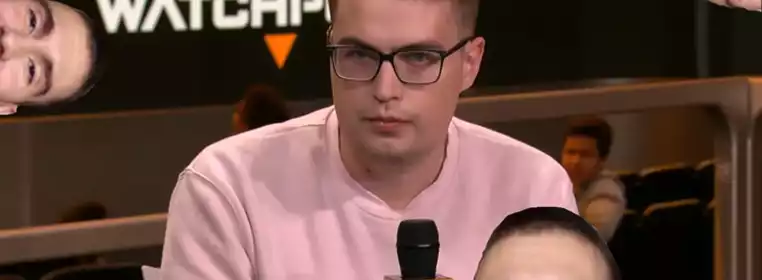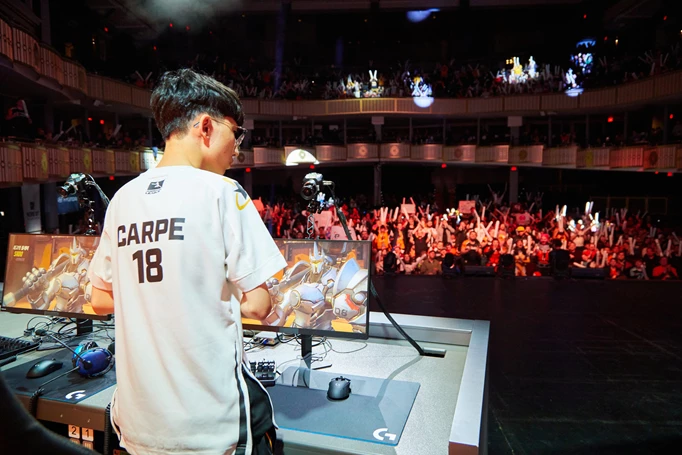Just Be Confident 4Head – OWL Coaches On the Irrefutable Power of Confidence

“It was like watching a better team. We hadn’t coached them any differently, they hadn’t learned anything differently, we weren’t playing against different teams, we weren’t playing different comps.” - ChrisTFer
There’s little doubt that in 2020 Twitch culture, Nike’s marketing over thirty-year-old slogan “Just do it!” would inevitably be met with the adage of “4Head” (the application here being a brain breaking paradox) or at least “ResidentSleeper”. Perhaps due to the commercialization of wisdom, we are left consciously numb to the power of such seemingly cheesy expressions. Arguably, valuable wisdom is omnipresent, and we are stacked with the knowledge of it intellectually, but unless we can emotionally experience it ourselves in a eureka moment, we easily discard them as platitudes. The value of our grandma's advice often only reveals itself years or even decades later. We're sorry, if only we had listened earlier.
Therefore it comes as no surprise that whenever the topic of confidence is brought up, our mind’s eye rolls into the back of our head in moderate boredom while we outwardly nod in agreement to whoever is trying to sell us on its merits. It doesn’t help the reputation of the topic of confidence with regard to competition that a lack of it is frequently used as a convenient justification for bad performances, seemingly to mask an internal problem teams would rather not talk about, right?
And yet there is the persistent talk about confidence by professional players especially around FPS esports. They describe sensations in which they fly into the duel against an opponent differently when they are convinced they are the better player, finding it easier to hit their shots. Champions regularly talk about how their vision of holding the trophy was real to them before they manifested it. When confidence allows players to be more proactive and aggressive in their play and they pair it with individual skill, dominance arises. Barely anyone became the best before thinking that they were.
“The moment of self-doubt is a killer.” - Dpei
A vote for confidence
On a podcast episode of Tactical Crouch, assistant coach of the Philadelphia Fusion ChrisTFer echoed the sentiment, telling the story of his team’s season start in which they went into the first two matches against the Washington Justice and the Florida Mayhem and narrowly beat out both opponents. “Going into our first games at the Philly homestands we really weren’t sure if we were going to beat Washington and Florida and that’s like the gods’ honest truth.” ChrisTFer said, explaining that their scrims results hadn’t been convincing and that the team still hadn’t developed a solid grasp on the meta.
According to ChrisTFer, having won their first two matches, the entire team’s energy changed. “The next week of scrims, we were so much of a better team because he had won the games before.”, he shared. Excluding other surrounding factors from the equation as to why they saw such an uptick in performance, the former British World Cup participant made it a point to champion the power of confidence, stating that “it was like watching a better team. We hadn’t coached them any differently, they hadn’t learned anything differently, we weren’t playing against different teams, we weren’t playing different comps.” Having experienced one of those eureka events in which the conventional wisdom around the topic of confidence made absolute sense, ChrisTFer shared his moment of clarity, stating that “without the shadow of a doubt, [if] we lose to Washington on day 1, our season right now looks like totally different.“
Other coaches weigh in
The importance of confidence is echoed by coaches across the league and crucially across the spectrum of success, from the worst to the best teams. In an interview with GGRecon, the head coach of the Boston Uprising, Mineral, whose team just recently experienced an upswing in performance after various setbacks due to player retirements, agreed with the sentiment. “I think ChrisTFer is right--confidence and belief that you can win often transcend other aspects of competition,” he wrote. Barroi, one of the assistant coaches currently leading the Toronto Defiant, agreed and expanded the scope of those intangibles: “In my opinion confidence, motivation and drive are at least equally important to winning a match as in-game skill. The mental state of players has so much more influence on their own gameplay as well as their teammates’ gameplay than fans tend to believe.” He went even further, claiming that “a team that is confident and “hungry”, but from a skill perspective only tier 3 can beat a tier 1 team that has no motivation and doesn’t necessarily care for the outcome enough. This is just made possible by out-of-game factors.“ Depending on your definition of the tier system, we saw glimpses of this theory holding up in last year’s matches between the Vancouver Titans and lower rated opponents such as the Los Angeles Valiant (who ended the Titans’ flawless season record) and the Washington Justice.

 Click to enlarge
Click to enlargeHead coach and general manager in personal union of the Los Angeles Gladiators Dpei also agreed, framing confidence as both an inward belief in one’s own abilities as well as your team’s and on the flipside also to be convinced that you’re better than your opponent. “I think confidence is a really key mental state to win against any opponent. You have to start believing in yourself and your teammates that you can beat these guys no matter what the situation. Overwatch is just as much of a mental game as it is a strategic game, and the moment of self-doubt is a killer”, he shared with us.
The troubles of sourcing confidence
However, Dpei warned against the danger of making the source of your team’s confidence to be based on the shaky foundation of victory, stating that “winning is important to snowballing momentum, but you can’t rely on wins to keep your team environment strong. You need really high and consistent standards and expectations to keep your team environment strong, so even if you’re struggling, you can always bounce back by falling back on your philosophy as a team.” Dpei’s teams in the last two seasons had always hovered around the top third of the standings but had also had rough patches, during which it was on the team and the staff to pull themselves up. Barroi, whose team had gone through a strong period at the start of season 2 but later broke down, finishing outside the play-in ranks, agreed with Dpei’s insight, stating that winning was “only a short-term fix. It might go well for a few months, but at some point the team will break apart if proper support structure is not present.”
Indeed, there are a finite number of victories in the Overwatch League and for bottom-tier teams who simply aren’t winning as much, workarounds are required to tap into the power of confidence that isn’t contingent on match day results.
During the episode of Tactical Crouch, ChrisTFer would repeatedly refer back to confidence as a difference-maker, even going as far as to suggest to teams like the Boston Uprising, who at the time only had one victory on their record and were looking lost, should completely commit to the power of it and perhaps only scrim contenders teams which they could reliably beat in order to raise the team’s belief in themselves. Mineral showed himself receptive to the suggestion but also raised a valuable counterpoint in saying that confidence is only half the battle. “Naturally heading into practice and losing a lot can really hit confidence and cause a downward spiral, while on the flip side not being in the server with the top teams also hurts your ability to study the best and learn from them,” he argued, also stating that valuable scrim partners were already hard to come by as a low tier team.
A pattern I recognized in coaches who had a track record of elevating their teams past their perceived firepower is that they honestly believed — a crucial difference from pretending — before anyone else that their players were on par with the world’s best. While that rarely manifested to the full extent, such as in cases of the Boston Uprising of season 1, their very confidence in their players and their system was always present and found their way into every statement they made. In some ways, they were super fans of their own team. As it turns out, they were just confident 4Head.
Images via Blizzard Entertainment and Twitch.tv